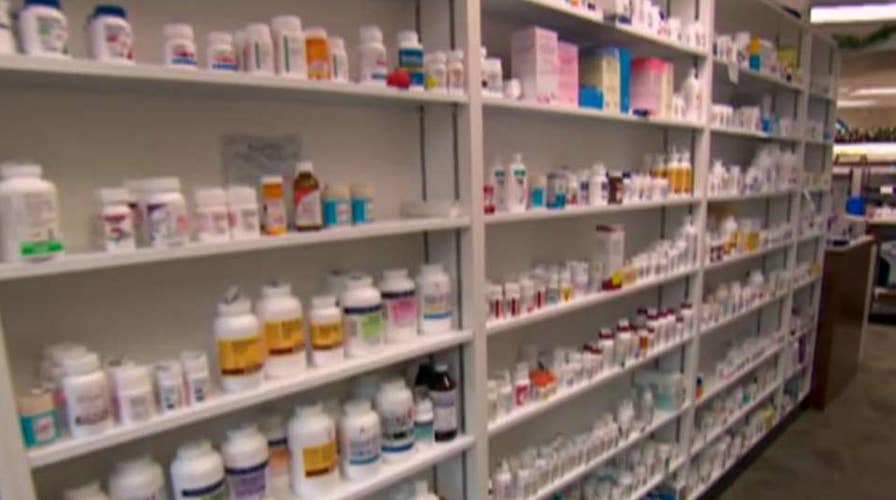Trump unveils sweeping plan to lower prescription drug costs
President aims to make good on campaign promise by attacking the problem on multiple fronts; chief White House correspondent John Roberts reports from Washington.
President Trump announced on Friday a set of measures—part of a comprehensive plan called “American Patients First”—designed to address drug pricing and the pharmaceutical industry more broadly.
This speech follows up on a major campaign promise by Trump to lower the prices of prescription drugs—a goal shared even by Democratic candidates including Hillary Clinton and Bernie Sanders.
President Trump in his speech made bold claims about the magnitude of this proposal, saying, “We are launching the most sweeping action in history to lower the price of prescription drugs for the American people.”
Indeed, it is important and encouraging that President Trump is finally taking action on this issue, and many of his proposals will provide substantial benefits to everyone.
In Trump’s announcement speech, he focused on the mismatch of drug prices in the United States and abroad, pointing out that customers in other countries pay much less for certain medication than American patients.
The vital core of Medicare Part D relies on its noninterference clause, allowing health care providers to negotiate directly with drug manufacturers, keeping Washington out of pharmacies and maintaining affordable drug prices for patients and must be protected even as the program grows and changes.
But he also highlighted certain elements of domestic health care policy that could be improved. In particular, two of the most important ideas Trump has produced are changes to Medicare Part D.
One of these suggestions is to require that plans under Medicare Part D share savings from drug rebates with patients directly. As it stands, Medicare Part D entails significant discounts from pharmaceutical companies, but it is rare that these discounts end up back in the pockets of patients.
While these specific changes may be beneficial, it is vital to preserve the core of Medicare Part D in general.
Around 70 percent of Medicare enrollees have a supplemental plan like Part D and the vast majority are happy with it: according to Medicare Today’s Senior Satisfaction Survey, 88 percent of seniors are satisfied with their Part D plans.
As former Congressman Joe Pitts, R-Penn., explained in a 2014 hearing, the success of Medicare Part D is reliant on free market competition as it allows private health care companies to compete to provide the best plans and products to consumers. It is essential to continue to foster competition, and moving more drugs to coverage under Part D would allow this to happen and would further encourage enrollees to choose plans that work for them.
While lawmakers continue to shape health care policy, it is important to both change what doesn’t work and keep what does. Accordingly, Trump and Congress must be sure to preserve the elements of Medicare Part D that have made it successful.
In particular, Part D relies on its noninterference clause, allowing health care providers to negotiate directly with drug manufacturers free from the influence of the Secretary of Health and Human Services. This is the vital core of the program, keeping Washington out of pharmacies and maintaining affordable drug prices for patients, and must be protected even as the program grows and changes.
It is positive that the president is following through on his promises to re-examine and redefine parts of the health care system. But as he and his team do this, they must not lose sight of already successful programs like Medicare Part D and should seek to strengthen and expand these programs to benefit even more Americans.





















